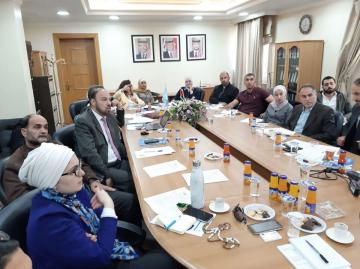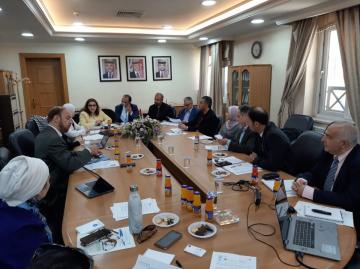Meeting of the National Task force for reviewing the energy situation of the building sector in Jordan
The project builds on existing work that has been undertaken or is currently being implemented in the region, and elsewhere, to help the relevant institutions in three pilot countries, including Jordan, develop the needed instruments and tools to set up effective large-scale implementation schemes for improving the existing buildings thermal quality and for dissemination of higher EE appliances and products.
The objective of this meeting is to present to the national project task force in Jordan, for discussion, draft results of the comprehensive baseline mapping study for the energy situation of the building sector in Jordan. Members of the task force, which include representatives of relevant public & private stakeholders for the considered branches of activities, will be solicited to help in validating some of the preliminary results and identifying areas requiring further investigation. The topics covered by the comprehensive baseline mapping study for the energy situation of the building sector in Jordan report include:
- Identification of key stakeholders in the residential and services sectors
- A preliminary assessment of the residential and services sectors share of the overall national energy consumption
- Socio-economic and energy characterization of the existing building stock, by branch of activities.
- Assessment of existing EE programmes, knowhow and capacities in the country, as well as potential local financing tools.
- Identification of possible institutional options to insure the implementation of the project within each member country, including the development of Super ESCO structures
The outputs of this mapping exercise shall constitute the basis for the remaining UNDA project activities and will help in defining the main axis and players for conducting the energy efficiency actions in the building sector.







